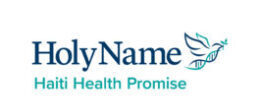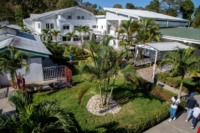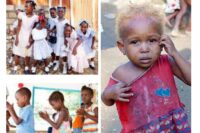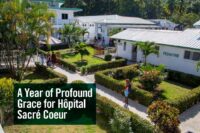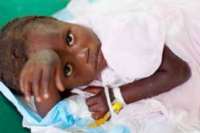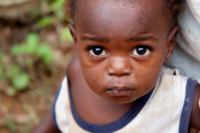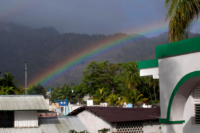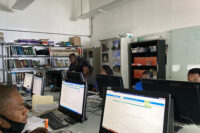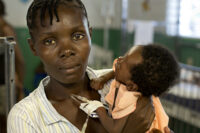“Dispatches From Haiti”
Student Dr. Benjamin Cox OMSII
SGA President
LECOM-Bradenton
Sunday June 28th , 2009.
I just arrived at the Ft. Lauderdale airport and I am really excited
about going to Haiti on an 8-day medical mission, but at the same time
a bit nervous. The airline company found out I was traveling to
CRUDEM they were extra helpful. I talked to a friend just moments ago
and we prayed together and discussed some details about the sound
system I was bringing down for the church youth group in Milot. My
small plane takes off, 14 passengers in all, with not a seat to
spare. As we fly in to Cap Haitian I look down to see beautiful
turquoise water embracing the mountainous coastline, and have a
feeling I am about to embark on a great adventure.
 Monday June 29th, 2009
Monday June 29th, 2009
After breakfast, we go to the clinic to see patients to be scheduled
for surgery that week. Between 8 am and noon we see 18 patients and
schedule 12 for operations. I learn to say some basic phrases in
Creole such as “COUSH-AY” (lay down) and “TOOS-AY” (cough) as I
examine some of the men presenting with hydroceles and hernias. Our
third case was one of the most interesting. A young woman appearing
to me to be pregnant presented with lower abdominal pain. We reviewed
her history and examined her to find she actually was not pregnant but
instead had a 35 pound ovarian mass that was the size of a watermelon
she had been living with for two years. We decided to operate on her
and removed it several days later much to her relief. We start
operating in the afternoon and see an emergency case of a trauma
victim. A three year old boy came in after being hit in the belly
with a rock. We suspect he has ruptured something internally judging
by his rigid abdomen and involuntary guarding. Without the aid of
imaging like MRI and CT, we are forced to practice medicine as if we
are back in the 1950’s and decide to do exploratory surgery. We make
a vertical incision down the midline and begin to systematically
examine his organs. Sure enough we find a perforation in his small
intestine and repair it and sew him back up. I checked on him later
in the week and saw him walking and recovering well from the surgery
that he most certainly would have died without. In Haiti, sepsis is a
death sentence because there are not the resources available to treat
patients like we have in the United States. Our last case of the day
was another emergency case of a man with an incarcerated hernia. We
operate on him and free up the bowel, preventing further ischemia and
necrosis and thereby save his life as well. We wrap up in the OR and
head back home for a delicious dinner of beef-and-potato casserole and
salad at the CRUDEM campus. After dinner, back in the doctors
residence, we play dominos by candle-light and everyone on the team
shares their stories from that day. The quarters echo with laughter
and joy as we all get to know one another more and bond in our
dedication to service and volunteerism. The Haitian people are all
very friendly and appreciative and I received from them so much more
than I was able to give of myself on the trip. The experiences for me
were lifetime lessons, and I feel very blessed to have had the
opportunity be a part of their lives.
*Here is a pic of me (front row/teal scrubs) and the team I was so
fortunate to have worked with:
